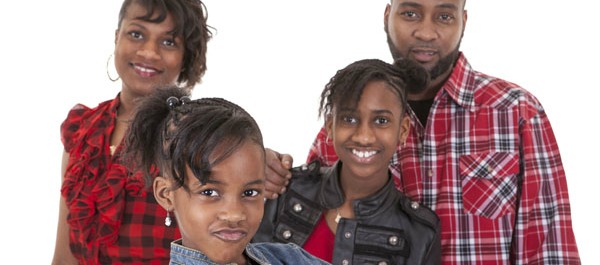I live and work overseas most of the time, sometimes in places where the African (and specifically the African-American diaspora) is sparse. And this can pose a challenge when trying to raise the next generation of conscious black children. For example, we are currently living in a Latin American country where the “Afro” community is extremely small and confined to disparate sub-population pockets in only a few urban centers.
We live in the capital city where there is a larger Afro sub-community, but unfortunately our day-to-day lives do not allow for our paths to cross and we rarely, if ever, see them. We have actively sought out the local Afro-community, but what we’ve found has been confined to “black night clubs” which we can’t take our children to for obvious reasons, and some grassroots activist and culture groups which we need to dig into further.
The school our children attend and the one recommended as being among the top schools available, offers bi-lingual education, has an outdoor “campus”, offers every amenity you can think of, and the vast majority of the students come from affluent families whose involvement and resources make for a dynamic, international, engaging, and culturally rich environment.
So what’s the problem right?
Honestly there are several. First, most folks in the Afro-community here do not have the means to afford the school our children attend, so there are no children of the local Afro-community in the school. There is only one other African-American family at the school and we are friends with them, but they are leaving this summer.
Even though this is an American curriculum school, it is being taught in another country by teachers of that country so local history, culture, and values tend to predominate and our kids are not being taught their own national and ethnic culture and history. There are no pictures on the walls of the school depicting African diaspora leaders; there are however white and Latino leaders. There are only two black teachers/administrators out of over 150 faculty and staff, and my husband is one of the two. The school doesn’t celebrate certain US holidays and theme months including Martin Luther King Jr. Day and Black History Month. I only mention the context of the school since school is one of the most formative influences on children and in our case there is really nothing “black” in their school environment.
Black School
As I sit and reflect on these circumstances, and try to figure out how I can raise conscious, self-aware and self-loving, woke, and culturally proud children, when there is an acute absence of role models, depictions, and a community to help me raise them up. What we’ve done is employ a “home-schooling” curriculum with our kids. It isn’t anything formal but is more of an education using what we have at home and the resources available to us.
My husband is a teacher at our kid’s school and actively scours the library to find books and materials that highlight African-Americans, people of color, and the many contributions they have made to global society. At home we have African art and sculptures, decorating parts of our home and we explain to the kids what they are and what they mean.
Since we live in the digital age and the kids are digital natives, we added what we call “YouTube School”. Nearly every day in addition to our bed-time story, we will find a clip or two that relates to being black or a part of the African diaspora. For Black History Month, we showed them literally every day a different clip about our leaders such as, The Obamas, Malcolm X, Angela Davis, Martin Luther King Jr., Assata Shakur, the Black Panthers, James Baldwin, Nina Simone, Harriet Tubman, etc.
After each clip, we talked about the person, what they did, how they lived, how they died, how their struggles impacted us, and answered their questions. The kids took to this so much that they asked to continue in March for Women’s History Month, so we did and found even more videos about black female leaders and their contributions to society.
We started celebrating Kwanzaa, even though we never did before, for many reasons. The main reason being the important personal and collective values Kwanzaa promotes that are in line with values we want to instill in them.
Black Community
We try to create a feeling of “community” for our kids and have banded together with the few other Afro people/families we’ve met and we get together as a community on a monthly or bi-monthly basis. At our gatherings, we do what we do; play spades, dominoes, grill, blast “our” music, play the dozens with each other, s*it talk, watch the latest movies/documentaries, “I Am Not Your Negro”, “Get Out”, “13th”, “Fences”, “Dear White People”, etc and discuss them. The kids are always front and center at these gatherings.
Black Society
We talk with our kids to the level appropriate about what is happening back home, like police brutality, lop-sided and/or unfair policies under the “current administration” that inherently disadvantage people of color and especially black people, the elections, etc.
We buy them toys and games that have characters that reflect them or have a black protagonist to convey to them that leaders, super heroes, and successful individuals look like them and could be them.
Even though I don’t have all the answers as to how to keep your kids black in a white world, we have found some methods that work for us for now.
BMWK, what do you do when confronted with a lack of black iconography, information, representation to help your kids know themselves?


Leave a Reply